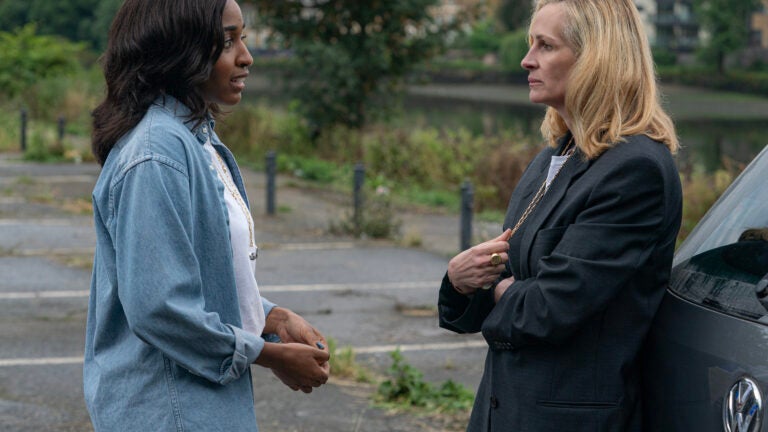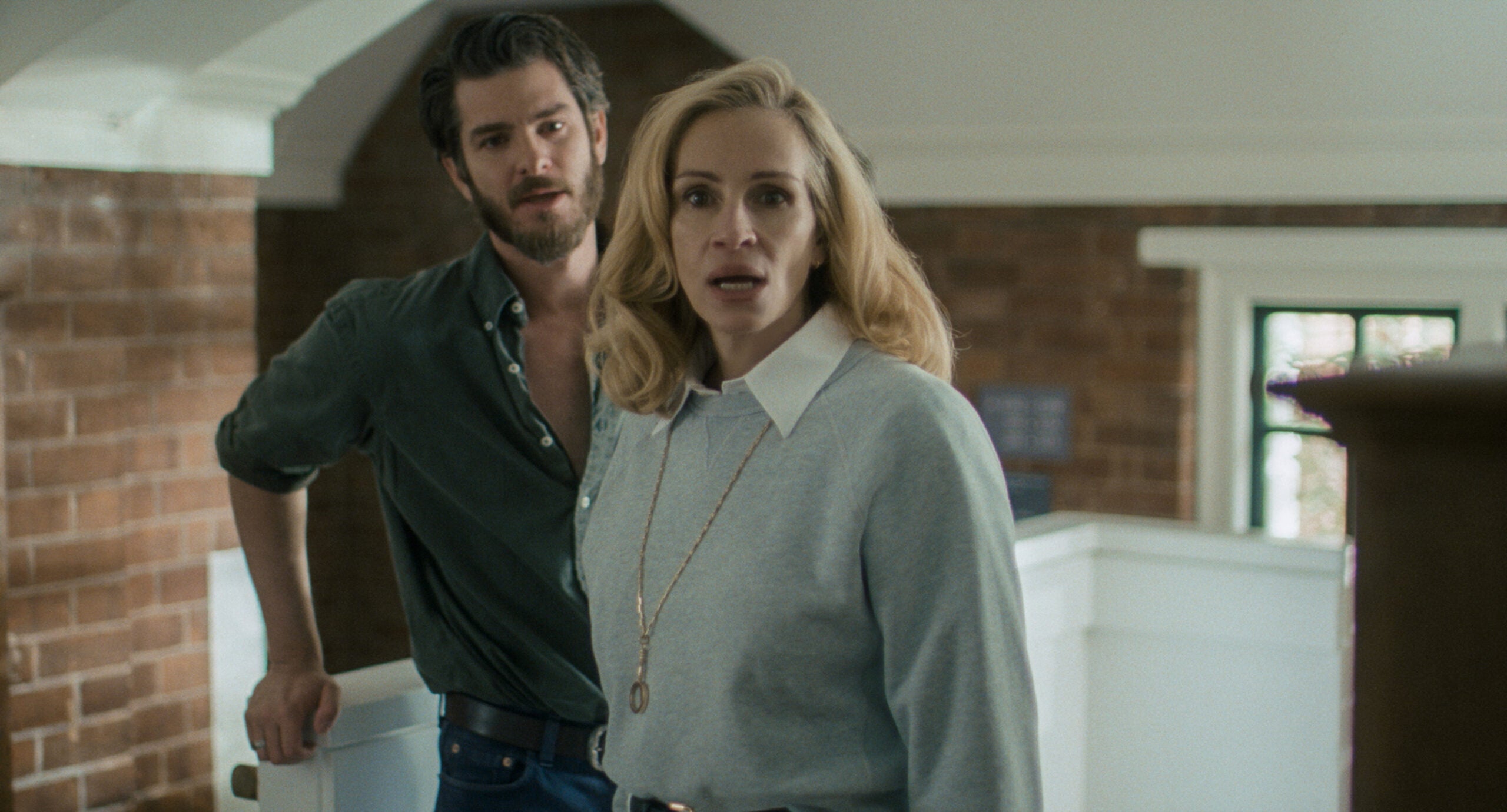Movie Reviews
Luca Guadagnino’s #MeToo movie starring Julia Roberts, Ayo Edebiri, and Andrew Garfield prioritizes style and provocation over substance.

Watching Julia Roberts, resplendent in a white pantsuit, comfortably seated on a leather couch in her tastefully decorated townhouse as she half-listens to a roomful of party guests attempting to impress her, one word comes to mind: Power.
Roberts, playing a Yale philosophy professor named Alma Imhoff in Luca Guadagnino’s hot-button drama “After the Hunt,” certainly looks the part of an academic powerhouse. At the dinner party that opens the film, she is fully in her element, watching with a half-grin as her close friend and fellow professor (Andrew Garfield) debates a doctoral candidate (Ayo Edebiri) about the perceived sensitivities of her generation.
But looks can be deceiving. Despite expounding on topics like “Foucault’s panopticon” ad nauseum, Alma still doesn’t have tenure. That one article that’s going to push her over the line is perpetually in the future, and until then, she has to keep up appearances.
“After the Hunt” suffers from a similar condition. Despite hinting at a grand thesis tying together cancel culture, #MeToo, power dynamics, and the cloistered world of academia, Guadagnino is content with light provocation and half-measures. Rather than telling a complete story, like Todd Field’s “Tar,” the director is fine with putting beautiful people on stage and having them gesture toward greater meaning that simply isn’t there. As one character fittingly says about midway through the movie, “I’ve found myself in the business of optics, not substance.”
The central conflict of the film is revealed early. Following a day of class, Alma finds Maggie (Edebiri) in her foyer, where she accuses Hank (Garfield) of sexually assaulting her after the party. Or rather, she accuses Hank of “crossing a line.” She can’t bring herself to say what actually happened, much to Alma’s frustration.
That initial frustration soon backfires on the professor. Maggie, initially hesitant about coming forward, becomes a campus cause célèbre when she gives an interview about Hank, resulting in his ouster. Hank, played as a wolfish cad by Garfield, insists nothing happened, and the real reason he’s being targeted is that Maggie plagiarized her thesis. But when Alma begins to investigate, Maggie turns her newfound power against her, recalling how her onetime mentor, under the guise of helpful advice, effectively tried to silence her from telling her story.

Guadagnino revels in the uncertainty of it all. He seemingly directs Edebiri, giving a fine performance, to act as shifty and unsympathetically as possible. Perhaps we are supposed to perceive Maggie through the eyes of Alma, who can already sense that the woman 25 years her junior might one day be her boss – if Yale keeps her around that long.
Ultimately, “After the Hunt” takes an intriguing premise and goes nowhere with it. It simultaneously tries to tackle a thorny, complex issue while also delighting in pointing out the artificiality of the debates everyone is having. It’s not just the actors, who all do what they can with the material, who are putting on a performance: the artifice is represented everywhere on screen. The loud, jarring score, from Nine Inch Nails duo Trent Reznor and Atticus Ross, is straight out of a soap opera. Then there’s the nondiegetic ticking noise that appears throughout, hammering home to the audience that a metaphorical bomb is about to go off. There’s even a point when someone offscreen yells “cut!”.
The overarching message of “After the Hunt,” then, is that these types of #MeToo situations are often complex and multifaceted, and, when confronted by them, people tend to act and speak in a way that reflects current social attitudes. In effect, all the world’s a stage, and all the men and women merely players. That may have been a revelation when Shakespeare wrote it almost 500 years ago, but it’s a trite observation in 2025.
Rating: ** (out of 4)
“After the Hunt” is in theaters now.
Sign up for the Today newsletter
Get everything you need to know to start your day, delivered right to your inbox every morning.




